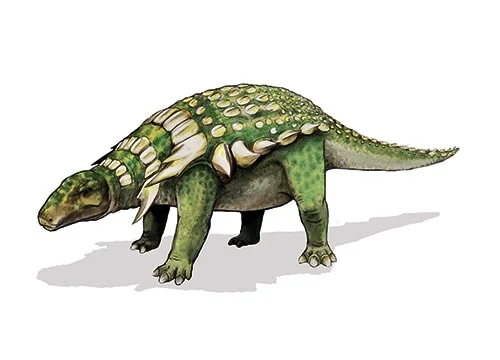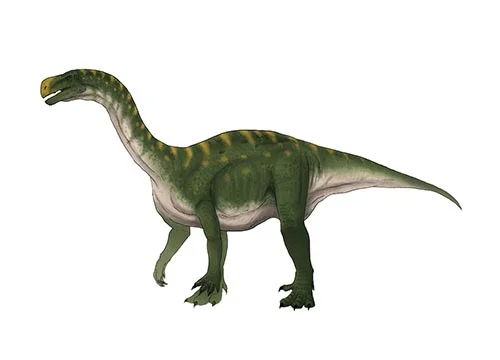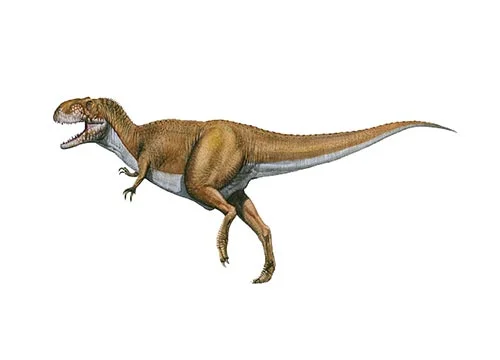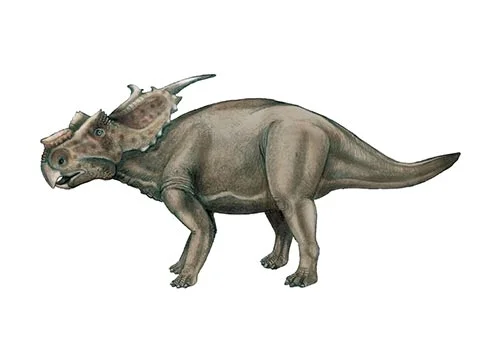Edmontonia (From Edomonton - After the Edmonton Formation)

Ed-mon-toe-nee-ah
Charles Mortram Sternberg - 1928
Herbivore
Estimated 4 – 6.5 meters long
Armoured Dinosaur
E. longiceps (type), E. rugosidens, E. schlessmani
Canada, USA
Late Cretaceous, 76.5-73 million years ago
Edmontonia Facts
Edmontonia, named after the Edmonton Formation where its fossils were discovered in Canada, is a genus of armoured dinosaur that lived during the Late Cretaceous period, approximately 76.5 to 73 million years ago, in what is now North America.
Edmontonia was a heavily armoured dinosaur, covered in bony plates and spikes that protected it from predators. It had a wide, heavily armoured body and a long, clubbed tail that it may have used as a weapon to defend itself. Its skull was also heavily armoured, with a sharp beak and teeth that were adapted for grinding tough vegetation.
The discovery of Edmontonia has provided important insights into the diversity and evolution of armoured dinosaurs during the Late Cretaceous period. Its physical characteristics suggest that it was a relatively slow-moving herbivore that relied on its heavy armour for protection.
Despite its impressive armour, relatively few fossils of Edmontonia have been found, making it a relatively poorly known dinosaur. Nonetheless, it remains a fascinating and important species for scientists and dinosaur enthusiasts alike, offering important clues into the complex ecosystems and evolutionary processes of the Late Cretaceous period in North America.



